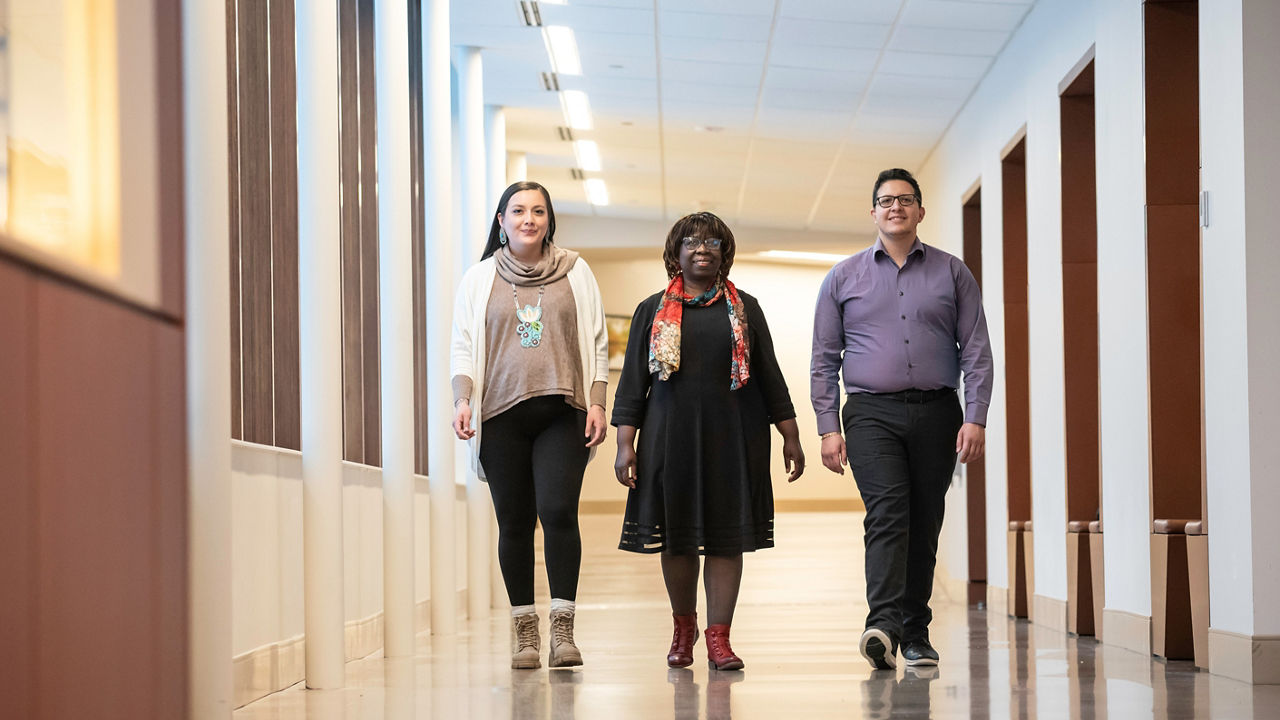Expanding Access
Educating Next-Generation Counselors
 For FaLeisha, Susie and Bryan (left to right), scholarships helped them pursue their dreams of bringing healing and hope to others.
For FaLeisha, Susie and Bryan (left to right), scholarships helped them pursue their dreams of bringing healing and hope to others.
It will make a difference if someone who’s just like them can help them find recovery.
Bryan Garcia, a recent graduate of the Hazelden Betty Ford Graduate School of Addiction Studies, is already making a difference. He began working at Hazelden Betty Ford as an addiction counselor in 2022 and credits the Graduate School for inspiring his creativity and research-driven approach. He's applying his background in music into his counseling—and collecting data to determine if music therapy might benefit patients in their recovery process.
He feels the scholarships he received at the Graduate School played a significant role in his journey.
"I was raised by a single mom in New Mexico," he explains. "It wasn't an option to ask for help from my family for school. Scholarships were the main reason I was able to focus on my studies, graduate on time and move forward in my career."
The growing need for addiction treatment continues to outpace the services available in the U.S. To compound the challenge, oftentimes patients of color are discouraged when seeking help—or don't even try—because it's hard to find counselors who relate to their lived experiences.
With the help of generous supporters, the Graduate School of Addiction Studies is working to change that. The School is recruiting students from diverse backgrounds, who will in turn create a wider path to recovery for all.
FaLeisha Jourdain is a member of Red Lake Nation and mother of two, who is juggling a fulltime job with her studies. She's interested in working within her own Native American community.
"I think it will make a difference if someone who's just like them can be there to help them find recovery," she says. Donor-funded scholarships have been "a relief," Jourdain says. "It gave me a chance to succeed in this field so I can help underserved communities."
Susie Brooks runs a nonprofit K-12 school in Minnesota. She also has years of experience—and a doctorate—in the field of education. "I saw how substance use was impacting young people," she explains. "Students were having mental health struggles at school, and I felt so helpless."
Enrolling in the Graduate School came from her desire to better understand these challenges and do something about the situation. Brooks' scholarships reduced the student loans she had to take on, so costs didn't stand in the way of her learning. She hopes her training in addiction studies will help her implement programs within the school system to address the complex circumstances young people are facing. "Kids need champions," she says. "Many aren't getting that support at home, and they need adults to come alongside them, without judgment."
For many Graduate School students like Susie, FaLeisha and Bryan, scholarships opened doors to a new future. And, along the way, they're finding their own lives enriched as well.
"My studies have been eye-opening," Susie admits. "What I've learned has changed me."